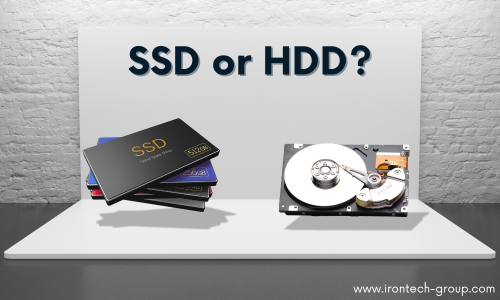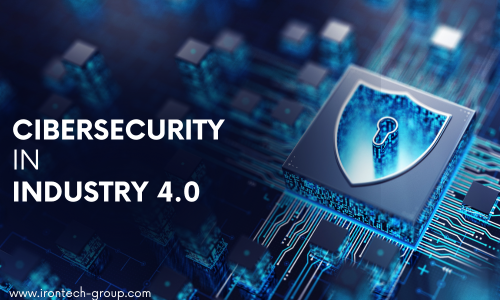When it comes to storage in an industrial computer, hard drives are an essential component that influences system performance. Currently, there are two main types of hard drives: the SSD and the HDD. Both have characteristics that make them useful in different contexts, but which is the best option for you? Below, we’ll explore what an HDD is, what an SSD is, their advantages, and the main differences between them.
What is an HDD (Hard Disk Drive)?
The HDD (Hard Disk Drive) is the traditional storage system that has been used for decades. It works through a mechanical mechanism composed of rotating disks that store magnetized data and a read/write head that reads and writes that data. This type of drive remains common, especially in low-cost PCs and laptops.
Advantages of an HDD
- Higher storage capacity at a lower cost: The price per gigabyte of HDDs is considerably lower than that of SSDs, making them ideal for storing large amounts of data, such as photos, videos, or backup files.
- Durability for long sessions: Although the mechanical components may seem like a disadvantage, HDDs are designed to handle prolonged and consistent workloads without immediate overheating.
- Availability in the market: Most mid-range and low-end devices still come with HDDs as standard. Additionally, they are easy to find in various capacities, up to several terabytes.
What is an SSD (Solid State Drive)?
The SSD (Solid State Drive) is a more modern storage technology that has no moving parts. It stores data on flash memory chips, similar to those used in USB drives, making it a much faster and more efficient option than traditional HDDs.
Advantages of an SSD
- Superior speed: The main advantage of an SSD is its speed. Boot times, application load times, and file transfers are significantly faster compared to HDDs. This translates to a much smoother and more efficient overall performance.
- Greater resistance to shocks and drops: With no moving parts, SSDs are more resistant to physical damage, such as drops or bumps, making them ideal for panel PCs working in industrial plants or portable devices.
- Lower power consumption: SSDs consume less power than HDDs, which can be a key factor in extending battery life for laptops and other mobile devices.
- Silent operation: With no moving parts, SSDs are virtually silent during operation, improving the user experience, especially in environments where noise is a concern.
Differences between HDD and SSD
Speed
SSDs are clearly superior in terms of speed. A standard HDD has a read and write speed of around 80-160 MB/s, while an SSD can easily exceed 500 MB/s and even reach 3,500 MB/s in more advanced models with NVMe technology.
Price per capacity
In terms of storage cost, HDDs remain the more economical option. HDDs offer much larger storage capacities at lower prices, with drives up to 10 TB or more available at affordable prices. SSDs, by comparison, are more expensive, especially in high-capacity models.
Durability and resistance
SSDs are more resistant to drops and bumps due to the absence of mechanical components, making them more durable in extreme or portable conditions. HDDs, on the other hand, have moving parts that can fail if the device suffers a significant impact.
Noise and heat
HDDs produce more noise and heat due to their moving mechanical parts. This may not be an issue in well-ventilated desktop systems, but SSDs offer a clear advantage by being silent and generating less heat, which is important in industrial plants with many people and machinery.
Lifespan
Although SSDs have a limited number of write cycles, under normal usage conditions they can last for several years without issues. HDDs, on the other hand, tend to have a shorter lifespan due to the mechanical wear of their moving parts.
Recommended uses for hard drives
- HDD: Ideal for those who need large storage at a low cost, such as storing large amounts of multimedia files or backups.
- SSD: Preferable for users seeking speed and performance, requiring fast loading of applications and files, such as for automation tasks.
HDD vs SSD: Conclusions
The choice between an SSD and an HDD depends mainly on your needs and budget. If you’re looking for economical storage and aren’t concerned about speed, an HDD remains an excellent option. However, if you prioritize performance, speed of data access, and durability, an SSD is the right choice.
For many users, the best solution is to opt for a combination of both: an SSD for the operating system and applications, and an HDD for storing large volumes of data. This allows you to enjoy the best of both worlds: speed and capacity at a reasonable price.



